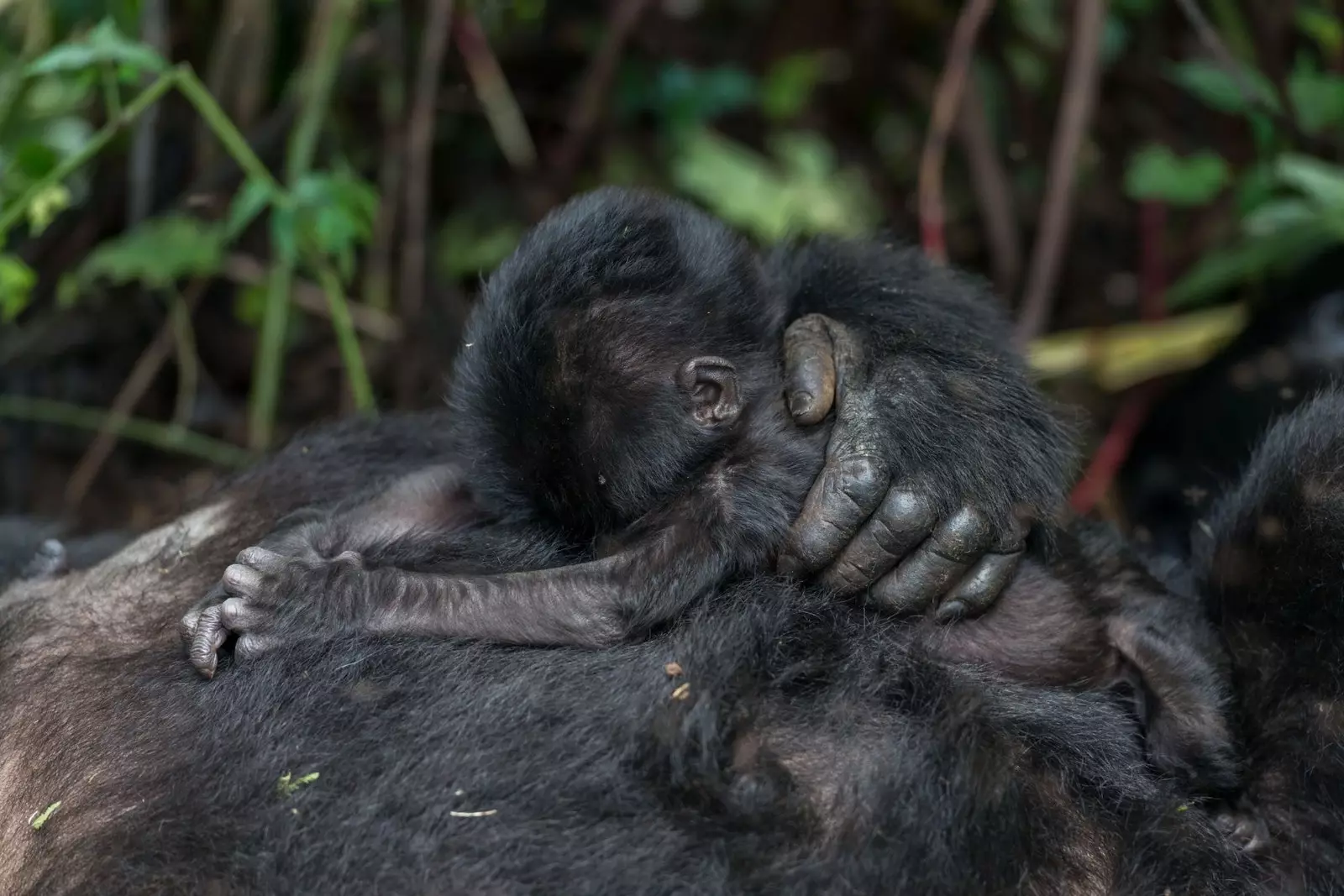
Baby Boom in Uganda: 5 pups in 6 months.
Since late April, rangers in the Bwindi Impenetrable Forest National Park in southwestern Uganda have reported an increase in gorilla calves. Good news that the country's conservation organizations are celebrating in style.
As we explained to you a month ago**, mountain gorillas are an endangered species**, found only in the mountain ranges of Uganda, Rwanda and the Democratic Republic of the Congo. The rangers' fight to conserve these natural parks has been brutal for many years.
Civil wars, resource exploitation and poaching (which does not have to be against gorillas but it does end up affecting them because they fall into traps), respiratory diseases and climate change are the main causes of their deaths.
In 2019, around 1,060 specimens were registered (in 2010 there were only 480), 459 of them are in the Bwindi Impenetrable National Park, as confirmed by Traveler.es Gladys Kalema-Zikusoka , veterinarian and founder of the organization Conservation Through Public Health (CTPH) that is dedicated to the protection of these species in Africa.
Gladys explains that these good figures have been thanks to the great work of the** Bwindi and Mgahinga Conservation Area**, and also to the increase in tourism in these areas.
“After chimpanzees share 98.8% of their DNA with humans, gorillas are the next closest relatives of humans . The habituation of gorillas to human presence has allowed the primate tourism . Bwindi has 18 habituated gorillas. In 2018, the conservation status of Uganda's mountain gorillas changed from Critically Endangered to Endangered thanks to conservation efforts that include veterinary care, monitoring and research, law enforcement, community conservation, and tourism that it also supports local communities.”
But without tourism, poaching, due to the lack of resources of the local population, is activated and the gorillas (and other species in the park) are once again threatened.
“Newborn babies make us smile after the last three months of mourning the death of Rafiki , the former lead silverback of the Nkuringo gorilla family who was killed by a poacher during the lockdown.”
The next few months will be crucial for these pups to get ahead. “Uganda Wildlife Authority (UWA) and its partners will need to step up conservation education in communities, as well as patrols and surveillance in protected areas where hatching occurs. At CTPH, we are raising funds to support these efforts, including obtaining funds for the purchase of hidden cameras and GPS devices to help UWA staff improve gorilla monitoring.”
And she adds: "Uganda's strict wildlife laws must be enforced in cases where gorillas are harmed so that the culprits receive deterrent sentences. that serve as an example for those who intend to enter the park illegally”.
Of course, the park has limits. Currently its space is 320 km2 , a space that may seem extensive but will not be if the gorilla population continues to grow. And on this Gladys points out that "conservation efforts are underway, including plans to expand the national park to provide a more protected habitat for gorillas."
